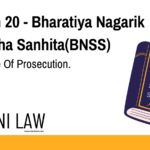Section 438 CrPC: Bail Before Arrest – Protection From Arrest in India
1. The Code:
Section 438 of the Code of Criminal Procedure (CrPC) deals with the grant of anticipatory bail. This section allows a person who has reason to believe that he/she may be arrested for an offense, to approach the court and seek protection from arrest.
2. Explanation:
In essence, anticipatory bail is a pre-emptive measure. If a person anticipates arrest in connection with a cognizable offense, they can apply to the court for anticipatory bail. The court, after considering the facts of the case and the likelihood of the person absconding or tampering with evidence, can grant anticipatory bail.
Here’s a breakdown of the key aspects:
- Applicability: This section applies to cognizable offenses only. Cognizable offenses are those where the police can arrest a person without a warrant.
- Grounds for Bail: The court will consider various factors before granting anticipatory bail, such as:
- The nature of the offense
- The likelihood of the accused absconding
- The possibility of the accused tampering with evidence
- The accused’s criminal history
- The accused’s character and reputation
- Conditions: The court may impose conditions on the anticipatory bail, such as:
- Surrendering the passport
- Reporting to the police station periodically
- Not leaving the jurisdiction without permission
- Revocation: The court can revoke anticipatory bail if the accused violates any of the conditions or if there is a strong reason to believe that the accused is likely to abscond or tamper with evidence.
3. Illustration:
Imagine a situation where a person is falsely accused of being involved in a financial fraud. While investigations are ongoing, they receive information that the police are about to arrest them. They approach the court with evidence that they are innocent and seek anticipatory bail. After considering the evidence, the court may grant anticipatory bail, preventing their arrest until the investigation is complete.
4. Common Questions and Answers:
Q: Who can apply for anticipatory bail?
A: Any person who anticipates arrest for a cognizable offense can apply for anticipatory bail.
Q: What is the procedure for applying for anticipatory bail?
A: A person seeking anticipatory bail must file an application before the High Court or the Session Court. The application should include the details of the offense and the reasons for seeking anticipatory bail. The court will then hear the arguments of both sides and decide on the application.
Q: Can anticipatory bail be revoked?
A: Yes, anticipatory bail can be revoked if the court finds that the accused has violated the conditions of bail or if there are strong reasons to believe that they will abscond or tamper with evidence.
Q: What are the advantages of anticipatory bail?
A: Anticipatory bail can protect an innocent person from wrongful arrest and harassment by the police. It can also help to ensure that the accused is not held in custody unnecessarily.






